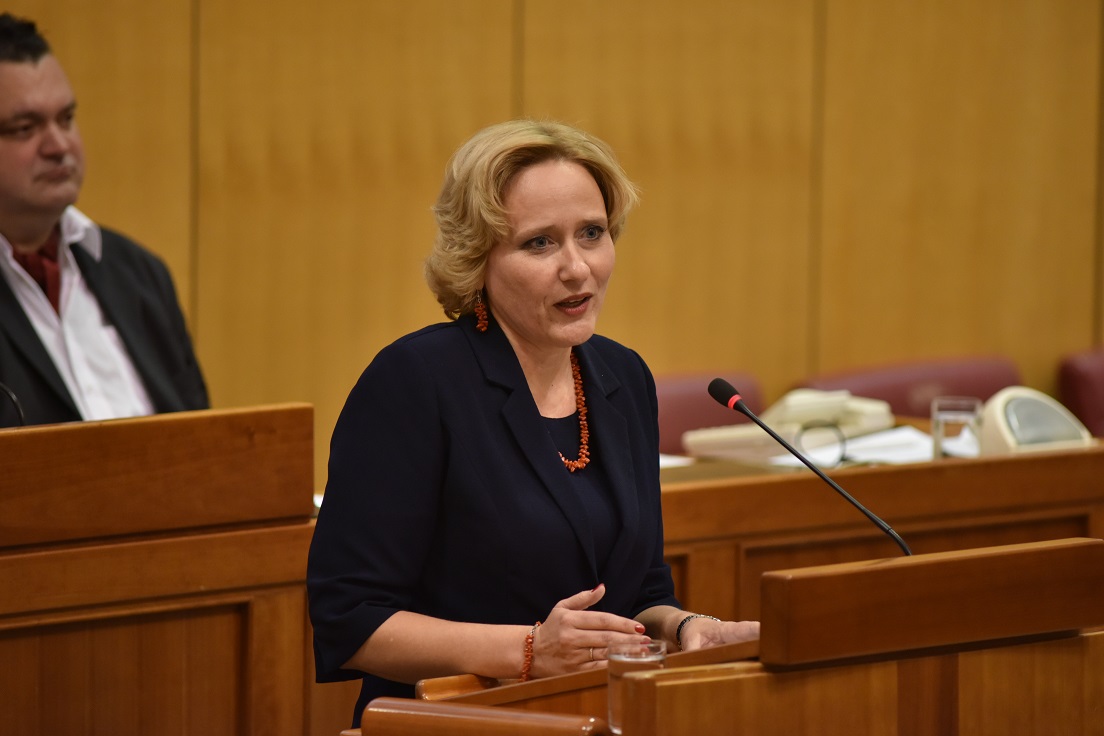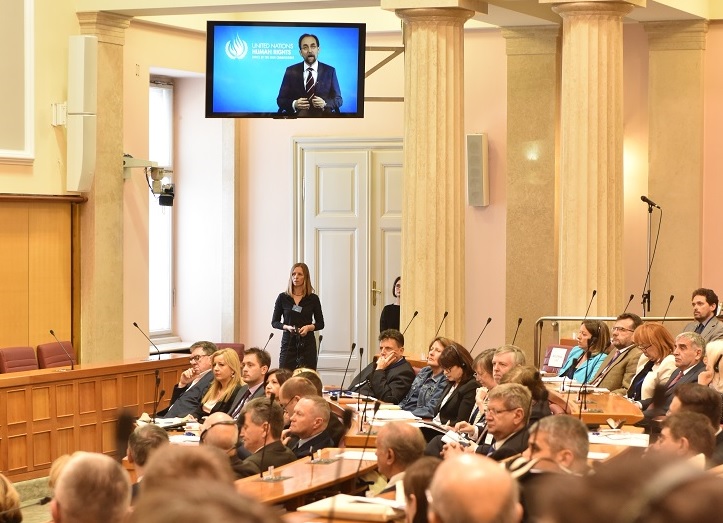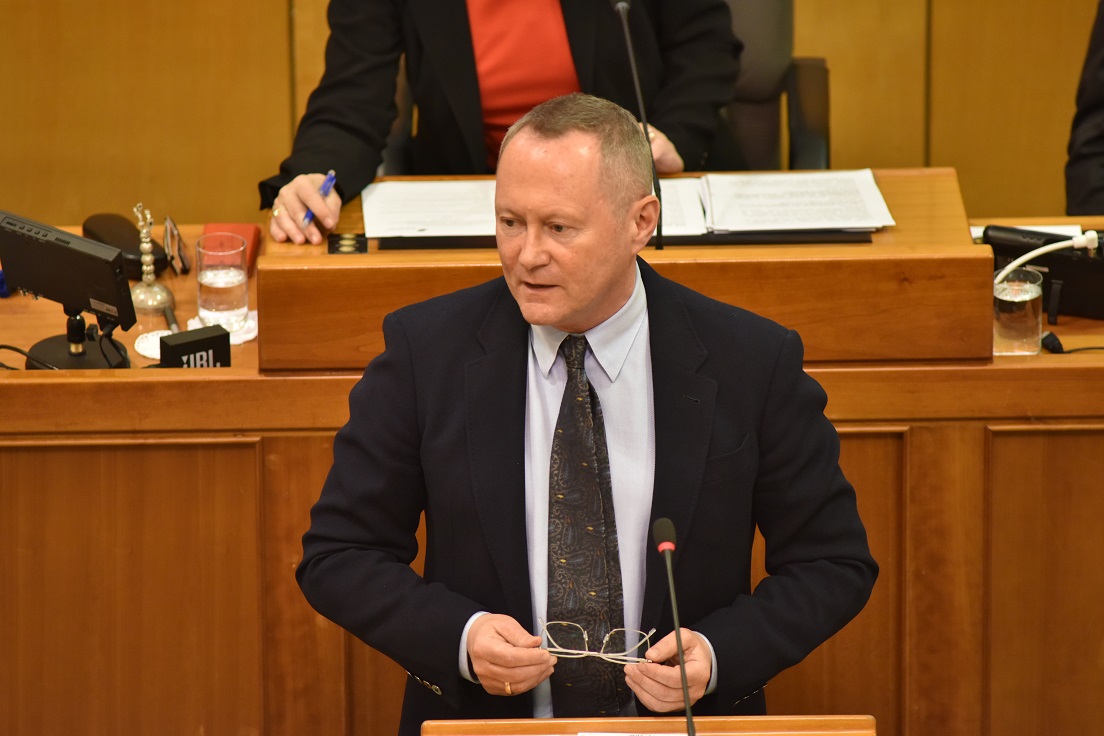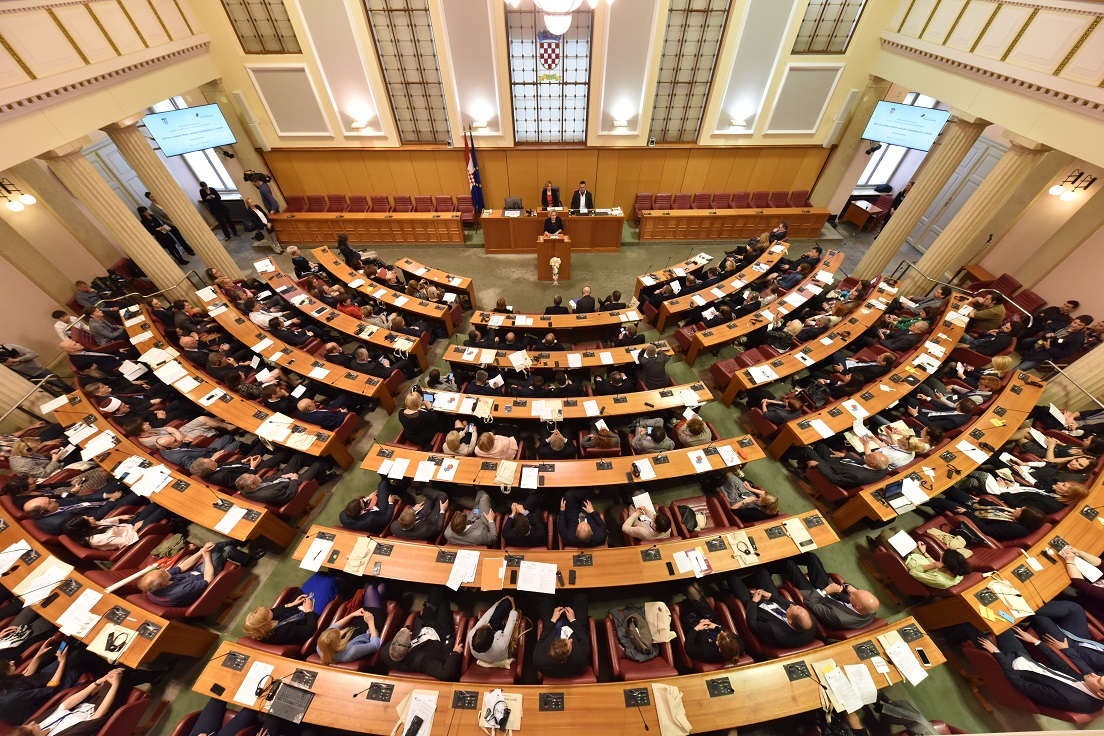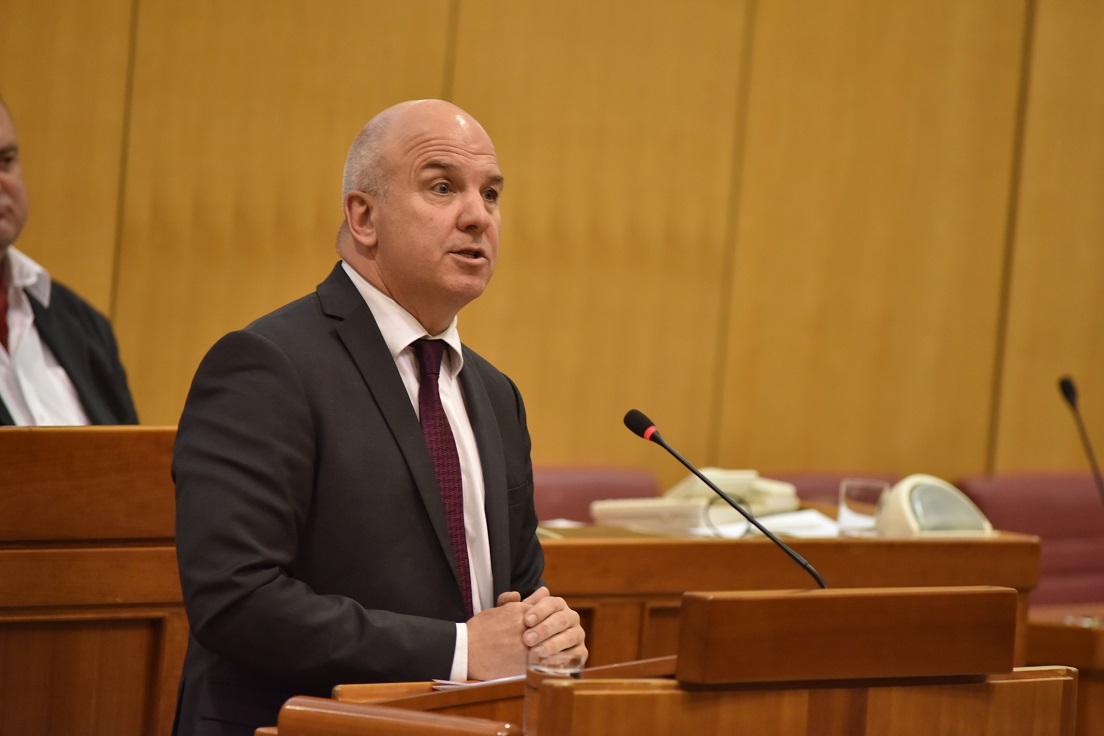With the formal opening of the International Conference „Reclaiming human rights in Europe: How to enhance democratic space?“ 25 years of the Ombudsman’s Act was commemorated on the 11th May in the Croatian parliament.
In her welcoming address the Ombudswoman Lora Vidović conducted the guests through the institutional development in the past 25 years and its contribution to strengthening of the democracy in Croatia. „What has not been changed during these years, and I firmly believe that it should remain so, is the basis of the institution’s work – these are arguments not sanctions, dialogue not orders, advocacy not legally binding decisions. The ombudsman’s authority is one of the characteristics of societies with highly developed democracy and strong rule of law. Having that in mind, I am pleased to conclude that our recommendations and words are more and more loudly and clearly heard and that they are more frequently and promptly answered. Of course, with occasional exceptions which will always be present and which require further efforts in obtaining a constructive dialogue“, stated the Ombudswoman, highlighting the role of cooperation in the institution’s performance.
Deputy Speaker of Croatian Parliament Željko Reiner addressed the meeting in the capacity as a special envoy of the Speaker of the Croatian parliament. He singled out that the Conference was the first gathering not organised by the Parliament, and which was taking place in the Session Hall.
UN High Commissioner for Human Rights Zeid Ra’ad Al Hussein expressed his full support to the independence of the national human rights institutions in his video message with congratulations to the Ombudswoman for this anniversary. “I firmly believe that national human rights institutions have a very significant role to play in ensuring that the governments live up to their obligations. You are uniquely situated for maximum impact on human rights issues in each of your countries. There is nothing abstract about human rights principles – they provide detailed, practical guidance to help governments establish sound policies for sustainable developments and peace”, said High Commisioner Zeid.
Council of Europe Commissioner for Human Rights Nils Muižnieks emphasised in his introductory speech that the democratic space is a legal and political environment in which pluralistic debate and civic participation can take place. „I have often said that freedom of expression, especially freedom of the media, is foundational, because it is essential to the exercise of many other rights. Limitations to freedom of expression can affect not only the media, but also broader society“, stated the Commissioner.
Powerful speech on strengthening democratic space by @CommissionerHR here in Zagreb chamber of parliament to mark #ombudsmanhr25 pic.twitter.com/GXMHPpv5YG
— Emily Logan (@CC_IHREC) May 11, 2017
Director of EU Fundamental Rights Agency Michael O’Flaherty, speaking about the fact that human rights are enshrined by law, reminded: “It’s not about some voluntary codex, it’s not a buffet from which we choose what we want, it is a law and we should demand accountability under that law”, stated O’Flaherty.
We have to use #humanrights law more vigorously in Europe, and demand accountability under that law #CroOmbudsman25 #HRChallenges
— Michael O’Flaherty (@MichaelCJT) May 11, 2017
The programme continued with the discussion on the role of national human rights institutions in strengthening democracy, with the participation of the GANHRI Chair and Head of the German Human Rights Institute Beate Rudolf, IOI President and Ombudsman of Ireland Peter Tyndall, Equinet Chair and Executive Director of the Northern Ireland Equality Commission Evelyn Collins and member of the Croatian parliament Committee for Human Rights and Rights of National Minorities Veljko Kajtazi.
Photographs from the Conference are available here, and video of the first day is available here.


